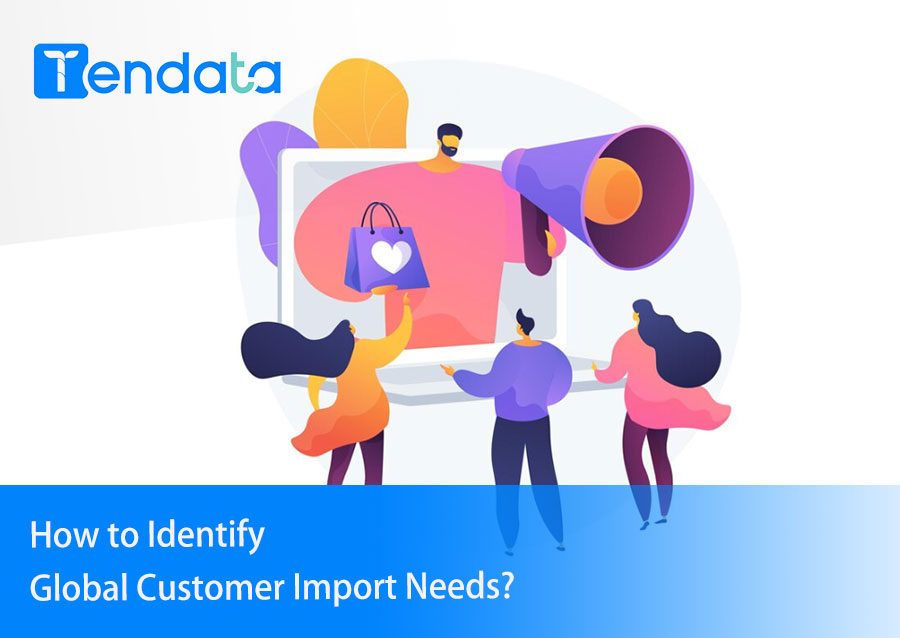 Trade Trends News
Trade Trends News
 10-11-2023
10-11-2023
In the dynamic realm of international trade, success hinges on the ability to
not only identify but also cater to the import needs of global customers. This
comprehensive analysis delves into effective strategies and insights for
recognizing and addressing the unique import requirements of customers
worldwide. As businesses navigate the complexities of cross-border commerce,
understanding and meeting the diverse needs of global customers become paramount
for sustained growth and competitiveness.

1. The Current Landscape of Global Customer Imports
The current landscape of global customer imports is characterized by an interconnected market where businesses engage in a constant exchange of goods and services across borders. This seamless flow of products has intensified due to advancements in logistics and communication technologies. The diversity of customer needs in different regions adds complexity to international trade. From cultural preferences to specific product standards, businesses must navigate a multitude of factors to ensure successful import-export transactions.
2. Why Identifying Global Customer Import Needs Matters
Recognizing and meeting the import needs of global customers is not merely a competitive edge but a foundational element for business sustainability. Understanding the nuances of customer demands positions businesses to tailor their offerings effectively. Businesses that proactively align their products with specific import requirements enhance customer satisfaction, fostering brand loyalty and repeat business. Customer-centric strategies become the driving force behind sustained success in the global market.
3. The Role of Data Analytics in Identifying Import Needs
Leveraging advanced data analytics and market research is critical for gaining insights into the ever-evolving preferences and demands of global customers. Shanghai Tendata Tech Co. Ltd stands out as a valuable resource, providing a comprehensive platform for businesses to access real-time data on market trends. By harnessing data analytics, businesses can identify emerging patterns, adapt to changing consumer preferences, and make informed decisions on product customization and market positioning.
4. Tailoring Products to Meet Diverse Global Demands
Adapting products to suit the cultural, regulatory, and logistical aspects of various regions is essential for successful global trade. Understanding the unique needs of each market segment enables businesses to customize their offerings effectively. Case studies of successful companies will be explored, showcasing how they have navigated the challenge of tailoring products to align with diverse customer import needs. These examples will highlight the strategic importance of flexibility and adaptability in the global marketplace.
5. Navigating Regulatory Challenges in Global Imports
Understanding and complying with varied import regulations across different countries is essential for seamless cross-border trade. Regulatory challenges can pose significant hurdles, impacting the speed and efficiency of import processes. Practical tips and examples will be provided on how businesses can navigate these challenges successfully. This includes staying updated on regulatory changes, establishing strong partnerships with local experts, and investing in compliance management systems.
6. Building Strong Communication Channels
Effective communication is key to identifying and addressing global customer import needs. Establishing robust communication channels is essential for conveying product information, addressing customer inquiries, and providing support throughout the import process. Strategies for multilingual support, responsive customer service, and utilizing communication technologies will be discussed. Real-world examples will highlight the impact of effective communication in fostering strong relationships with global customers.
7. Utilizing Technology for Customer Engagement
Technology plays a pivotal role in today's global business landscape, offering innovative solutions for customer engagement. Businesses can leverage digital platforms to connect with global customers, understand their preferences, and gather valuable feedback.
Conclusion:
In conclusion, navigating the complexities of global customer import needs requires a multifaceted approach. Businesses must leverage data analytics, adapt products, navigate regulations, build strong communication channels, and embrace technology. By incorporating these strategies, businesses can position themselves for sustained growth and success in the competitive world of international trade. Understanding and meeting the diverse needs of global customers not only ensures business continuity but also establishes a foundation for long-term success in the global marketplace.
How Shanghai Tendata Empowers Growth with Foreign Trade Big Data?
Tendata iTrader is a versatile foreign trade application tool and a great asset for professionals in the international trade industry.
(1) Real-time Access to Comprehensive Global Data: Tendata iTrader offers real-time access to customs data from 91 countries, customs code inquiries, and an extensive collection of foreign trade supply chain data, import-export statistics, and international company data. Companies can freely select the foreign trade databases corresponding to their trade regions and use nine different search methods to tailor their data queries based on single or multiple criteria. The search results can generate 19 types of market reports, and users can perform online comparative analyses as well. (>>> Click to use The Data Online for Free)
(2) Detailed Transaction Records from 91 Countries: Tendata's data system automatically integrates millions of accurate buyer information, detailed transaction data from 91 countries, and competitor details. It intelligently generates various data analysis reports, empowering companies to analyze competitors, maintain relationships with new and existing customers, and stay up-to-date with real-time international trade information. How is Shanghai Tendata performing?(>>> Click for Free Demo)
(3) Internet Search of Email Addresses in 153 Countries: With Tendata's proprietary web crawling technology, companies can access and validate email addresses in 153 countries, making mass email campaigns worry-free. Potential customers are automatically categorized by level, allowing users to find decision-makers within a minute. Choose from various email templates with unlimited sending capabilities. Tendata's data effectiveness is quite impressive. (>>> Click for More Details)

Category
Leave Message for Demo Request or Questions


 T-info
T-info T-discovery
T-discovery

 My
Tendata
My
Tendata Market Analysis
Market Analysis Customer
Development
Customer
Development Competitor
Monitoring
Competitor
Monitoring Customer Relationship
Customer Relationship





































































































































